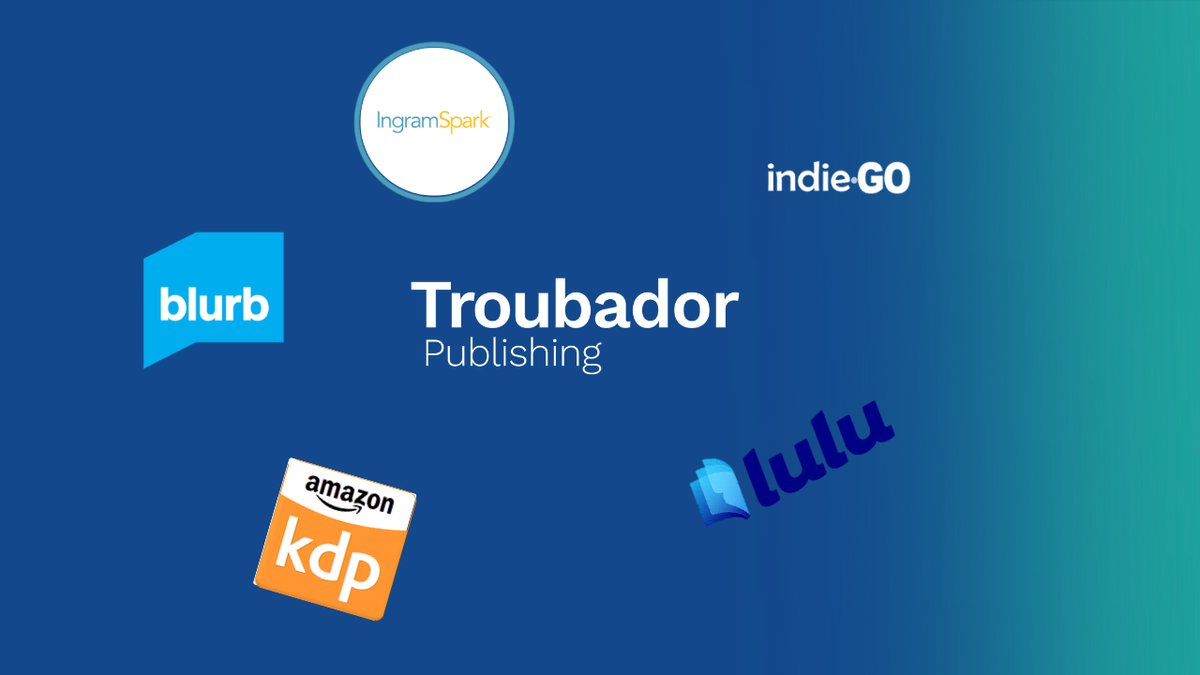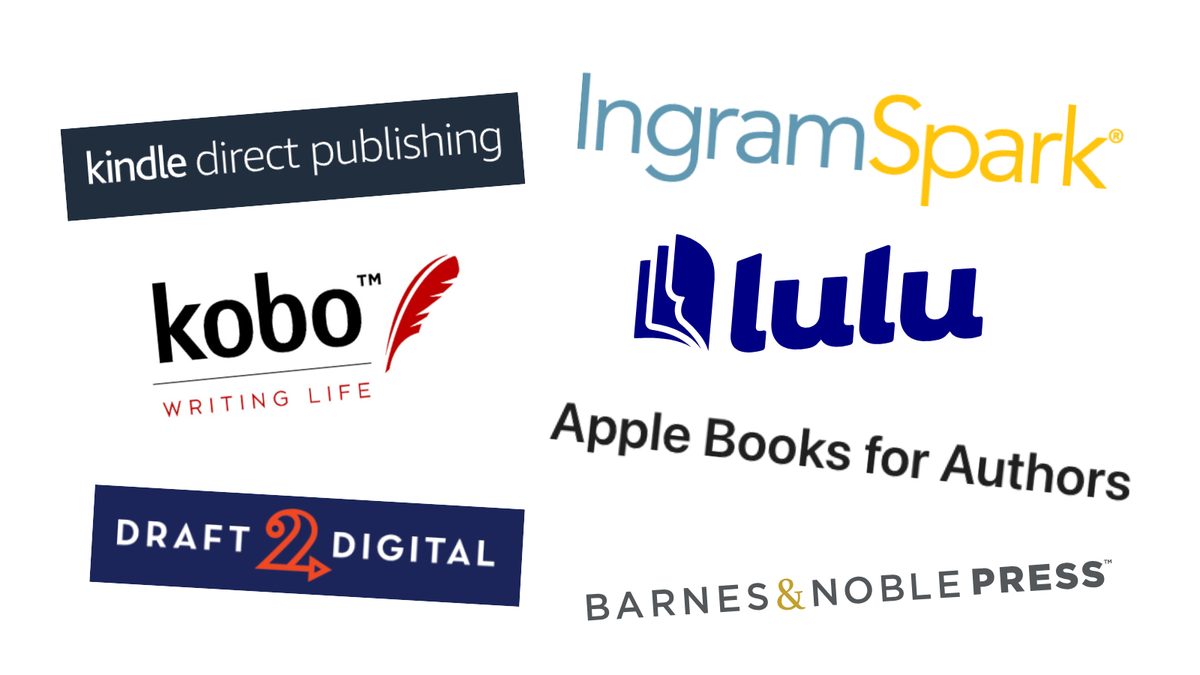
17th June, 2025
9 min read
The 4 Best Author Website Builders for Self-Published Authors
Written by:
Alex Thompson
In an increasingly digital publishing world, having an author website is one of the most effective ways for an author to establish their presence, showcase their books and connect with readers. For self-published authors in particular, it serves as a central hub for everything from building a mailing list to directing potential readers to online retailers.
There are several ways to build an author website, but using a website builder is often one of the most accessible options, especially for those without design or coding experience. These platforms offer ready-made templates, built-in features, and varying levels of customisation, making them a practical solution for many writers.
In this article, I’ll take a closer look at some of the most popular website builders used by authors. I’ll compare their key features, pros and cons, and outline which types of writers they might suit best, so you can make an informed choice based on your needs and goals.
Why Do Self-Published Authors Need a Website?
While social media and retailer profiles have their place, an author website gives you something those platforms can’t: full control over your online presence. Here’s why having your own website is a valuable tool in any self-published author’s toolkit:
Build your author brand
A website is the central space where you can define who you are as a writer. From your author bio and imagery to the tone of your content, it helps you present a consistent and professional identity to readers, reviewers, and industry professionals.
Sell books and link to retailers
Whether you want to sell directly through your site or direct visitors to bookshops like Amazon, Waterstones or Troubador, your website acts as a hub that brings all your buying options together in one place.
Engage with readers
A website lets you go beyond the one-way promotion that other marketing tactics offer. With tools like blogs, mailing list signups, contact forms and event calendars, you can build a two-way relationship with your readers and keep them updated on launches, signings or new releases.
Improve your visibility and SEO
Websites are indexable by search engines, unlike most social platforms, meaning your name, book titles, and topics can show up in search results. A well-structured site can help you get found by potential readers who are searching online for books in your genre.
 What is a website builder and what should authors look for?
What is a website builder and what should authors look for?
A website builder is an online tool that allows you to create a website without needing to write code or hire a web developer. Most offer drag-and-drop interfaces, pre-designed templates, and built-in features that simplify the process of launching and maintaining a site. For self-published authors, a website builder can be a practical and time-efficient way to get online quickly.
When choosing a website builder, it’s important to consider how well it meets the specific needs of an author website. Here are the key features to look out for:
Ease of use
Look for platforms that are beginner-friendly, especially if you have limited technical experience. An intuitive interface will make it easier to manage your site over time. However, be aware that they can still be complicated to use for those less technically savvy, and the templated websites they produce are often not the most inspiring or customisable.
Affordability
Costs vary widely across platforms. Some offer free versions with limited features, while others charge monthly or annual fees. Ensure the pricing aligns with your budget, especially if you're publishing with limited resources. Beware also that if you start paying for your website monthly or annually, you will likely have to continue to do that for as long as you want the website to be live.
Customisable templates
A good builder should offer templates you can tailor to reflect your genre, tone, and author brand. Bonus points if they include layouts designed specifically for writers or books. However, many builders provide limited, if any, customisations, and you should interrogate this well ahead of committing to a builder if this is important to you.
Blogging and email integration
Being able to maintain a blog or connect with an email newsletter provider (like Mailchimp) is key to growing your audience and keeping readers engaged. If interacting with your audience is a key reason for launching an author website, ensure you understand the functions and limitations of your chosen builder’s platform before proceeding.
E-commerce or sales functionality
If you want to sell books directly from your site, whether in print or digital format, ensure that the builder supports e-commerce features such as product listings, payment gateways, and order management. At the very least, you will want to be able to link effectively to other retailers, directing readers to where they can purchase the book.
SEO and mobile responsiveness
Your site should be optimised for search engines (so readers can find you), and it must display well on mobile devices, where much of your audience will be browsing. Without this, your website will be undiscoverable to readers who do not have the direct URL, which will significantly harm its visibility.
The 4 best website builders for authors
Wix
Wix is a popular drag-and-drop website builder known for its ease of use and visually appealing templates. It offers a wide range of customisation options and is suitable for authors who want to get online quickly without technical hassle.
Pros
- Intuitive drag-and-drop editor
- Wide selection of modern, customisable templates
- Built-in blog and email marketing tools
- App marketplace for added functionality
Cons
- Limited flexibility to change templates once the site is live
- Some features (like e-commerce) require higher-tier plans
- It can feel overwhelming due to the number of options
Best for:
Authors who want full creative control and a visually polished site without needing to code are. Especially suited to those who prefer a hands-on, design-driven approach.
Squarespace
Squarespace is a sleek, all-in-one website builder known for its professionally designed templates and strong visual appeal. It’s ideal for authors who want a stylish, minimalist site with integrated features like blogging, mailing lists, and ecommerce.
Pros
- Excellent, mobile-responsive templates
- Built-in blogging, email and ecommerce tools
- Easy-to-use editor with consistent design controls
- Reliable hosting and customer support included
Cons
- Less flexible than some platforms in terms of layout customisation
- Slightly steeper learning curve than Wix due to complex interface
- Fewer third-party app integrations
Best for:
Design-focused authors who want a polished, modern website with minimal effort. Great for showcasing book covers, photography, or portfolios alongside written content.
WordPress
WordPress is an open-source content management system that powers a large portion of the web. It offers unparalleled flexibility and control, making it ideal for authors who want a fully customisable website and are comfortable with a slightly steeper learning curve.
Pros
- Highly customisable with thousands of themes and plugins
- Strong blogging capabilities
- Full control over design, features, and hosting
- Scales well as your author career grows
Cons
- Requires separate hosting and domain setup
- More technical to set up and manage than drag-and-drop builders
- Maintenance (updates, security, backups) is your responsibility
Best for:
Bloggers, tech-savvy authors or those working with a developer who want complete control and long-term scalability.
Weebly
Weebly is a straightforward website builder that offers easy drag-and-drop tools and a simple interface. It’s a good choice for authors seeking a no-fuss, budget-friendly option to create a clean and functional website quickly.
Pros
- User-friendly drag-and-drop editor
- Affordable pricing plans, including a free option
- Built-in ecommerce and blogging features
- Mobile-responsive templates
Cons
- Limited design flexibility compared to Wix or Squarespace
- Fewer template options and less modern design styles
- Basic SEO features that may require workarounds
Best for:
Authors who want a simple, low-cost website without complicated features. Ideal for minimalist sites and those new to building websites.
How to Choose the Right Builder for You
Picking the right website builder depends largely on your individual needs and goals as a self-published author. Here are some key factors to consider:
Align features with your goals
Consider what you want your website to accomplish. Are you focusing on building a mailing list, regularly blogging, selling books directly, or simply showcasing your author bio? Choose a platform that supports the features most important to you.
Consider how often you’ll update your site
If you plan to frequently add blog posts, events, or new releases, pick a builder that makes updating content quick and easy. For a more static site, ease of ongoing maintenance might be less critical.
Budget and technical confidence
Website builders vary in cost and complexity. Be honest about how much you’re willing to invest, both financially and in time spent learning the platform. Some options are more beginner-friendly, while others offer greater flexibility but require technical know-how.
Why website builders are still challenging
While website builders make creating a site more accessible than ever, they’re not always as simple as they seem, especially for busy authors juggling writing, marketing and other commitments. Customising templates, managing technical details and ensuring everything works smoothly across devices can quickly become time-consuming and frustrating. Many authors find themselves spending more time wrestling with the platform than focusing on their writing or promotion.
For those who want a website that truly reflects their unique style and vision, professional help can be invaluable. Working with a web designer means pre-set templates or platform constraints won’t limit your site. Instead, you get a fully customisable website explicitly tailored to your brand, your books and your goals. This approach enables greater creative control and can lead to a more polished, distinctive online presence that truly stands out.
If you’re interested in expert support, Troubador builds hundreds of bespoke websites for authors every year through a service designed specifically for authors. Our team understands the needs of self-published authors and can build a site that brings your exact vision to life, saving you time and ensuring a professional result. Explore a sample of our recent projects here.
Making the right choice for your author website
Building an author website is a crucial step for self-published writers looking to connect with readers, promote their work and establish a professional online presence. While website builders offer accessible and affordable ways to create a site, they still require time, effort, and a level of technical comfort that not every author may have.
Choosing the right platform means considering your goals, budget and how much control you want over your site’s design and functionality. For many, a website builder can be a practical solution, but for those seeking a fully customised, unique site that reflects their personal brand exactly, professional web design services like Troubador Websites provide expert support explicitly tailored to authors at a competitive cost when compared with the platforms above.
Whichever route you take, the most important thing is to have a well-maintained, reader-friendly website that showcases your work and helps grow your author career. Now that you know the options, it’s time to choose the best approach and bring your author website to life.

















